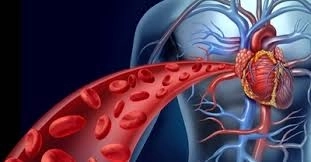
Arterial vs. Pulmonary Hypertension: Key Differences Explained by Dr. Ahmed Suleiman
Published on: 2025-06-25 | Written by: Dr. Ahmed Suleiman, Head of Cardiology Department at Students Hospital
Dr. Ahmed Suleiman, Head of the Cardiology Department at the Student Hospital, explains that high blood pressure isn’t a one-size-fits-all condition. There are two major types—arterial hypertension and pulmonary hypertension—each with different causes, symptoms, and health risks. In this article, we explore how to distinguish between the two and what to expect in terms of diagnosis and treatment, based on Dr. Suleiman’s clinical expertise.
What Is Arterial Hypertension?
Arterial hypertension, commonly known as high blood pressure, is one of the most widespread cardiovascular conditions. It occurs when the pressure inside the body’s major arteries remains persistently elevated.
According to Dr. Ahmed Suleiman, the condition is often linked to:
-
Obesity and an unhealthy lifestyle
-
Family history and genetics
-
Chronic stress
-
Kidney or endocrine disorders
It is usually diagnosed with a standard blood pressure monitor or a 24–48-hour ABPM (Ambulatory Blood Pressure Monitoring) device for more accurate readings.
What Is Pulmonary Hypertension?
Pulmonary hypertension is a completely different condition. It refers to elevated pressure in the arteries that carry blood from the heart to the lungs.
Dr. Ahmed Suleiman explains that this type is rarer and more serious, often caused by:
-
Congenital heart defects
-
Chronic pulmonary embolism
-
Chronic lung diseases (e.g., fibrosis or COPD)
-
Autoimmune or liver diseases
It is typically diagnosed using echocardiography (heart ultrasound) or cardiac catheterization.
Key Differences Between the Two
| Feature | Arterial Hypertension | Pulmonary Hypertension |
|---|---|---|
| Location of Pressure | Major systemic arteries | Pulmonary arteries |
| Common Symptoms | Headache, dizziness, nosebleeds, fatigue | Shortness of breath, dizziness, leg swelling |
| Diagnostic Tools | BP monitor, ABPM | Echocardiogram, cardiac catheterization |
| Treatment Response | Often improves with lifestyle and meds | Requires specialized medications or interventions |
| Risk Level | Moderate if untreated | High risk, requires close monitoring |
Dr. Ahmed Suleiman emphasizes that recognizing the distinction is essential, as each type demands a completely different treatment strategy.
Treatment and Monitoring Options
Treatment depends on the root cause and may include:
-
Antihypertensive medications (ACE inhibitors, beta-blockers, diuretics) for arterial hypertension
-
Pulmonary vasodilators for pulmonary hypertension
-
Continuous monitoring using Holter devices or ABPM
-
Advanced cardiac and pulmonary evaluations like echocardiography and MTM medication management programs
Dr. Ahmed Suleiman monitors patients through comprehensive programs that include ABPM, cardiac ultrasound, and individualized care plans.
Dr. Ahmed Suleiman’s Final Thoughts
High blood pressure is not a singular condition. Properly identifying the type of hypertension is the first step toward effective treatment.
While the names may sound similar, the underlying causes and health risks are vastly different.
Dr. Ahmed Suleiman advises undergoing a complete cardiovascular assessment if you're experiencing chronic symptoms or have a family history of heart disease.

